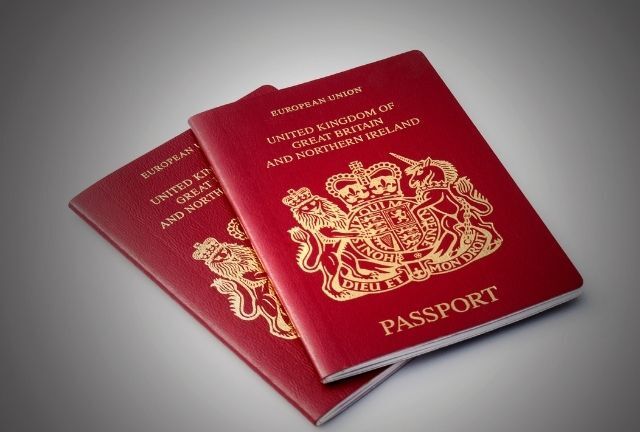Gender Pay Gap: She Deserves The Same
By Samer Abou Said and Minal Naseem – The Firm
Introduction
In the words of the Late H.H. Sheikh Zayed bin Sultan Al Nahyan, “ Nothing pleases me more than seeing a woman take on her distinguished role in society, and nothing should hinder her progress.” In 2015, in line with this objective, the UAE Gender Balance Council was established to further develop and implement gender balance in the UAE. Since then, the UAE has taken significant steps to promote gender equality by enforcing equal wages and salaries for men and women in the public and the private sector.
Equal pay for governmental sector
Federal Law No 27 of 2018 concerning gender wage equality in the public sector provides that federal government bodies should not discriminate between the wages of employees working in the same position based on their gender. The law recognized that salaries may vary depending on other factors such as the knowledge, skills or experience of the employees.
Equal pay for private sector
Recently, article 32 of Federal Law No. 8 of 1980 was amended by Federal Decree No. 6 of 2020 (“Labour Law”) to provide that a “ female worker shall be granted a wage equal to that of the male worker should she be performing the same work, or another one of equal value.”
We discuss below the impact of Article 32 and the challenges for its enforcement.
The Government: guidance and requirements
Article 32 further provides that “ by virtue of a Cabinet Decision – based on the proposal of the Minister of Human Resources and Emiratisation – the procedures, controls and standards necessary to evaluate the work of equal value
” will be developed. This indicates that the Government will be working alongside the Ministry of Human Resources and Emiratisation (“MOHRE”) to issue a well-rounded guidance and monitoring system to ensure that businesses are complying with Article 32 and that employees are aware of their rights and the procedures to follow should their employers fail to conform with the requirement of this Law.
So far MOHRE has not issued any instructions or guidance on the application of Article 32. Therefore, in the interim, it would be up to the UAE Courts to determine how damage and loss to the employee would be calculated, what remedies would be granted to the employee and what penalties would be imposed on the employer, if any.
It should be noted that Article 181 of the Labour Law provides that whoever breaches any imperative provision of this Law or its relating regulations or decisions shall be sentenced to imprisonment and a minimum fine of AED 10,000. Although this Article is not commonly used, It appears that it might be applicable to any employer in breach of Article 32 which is considered binding until and unless the Government issues any specific penalties for breaching Article 32.
Employees: How to determine whether you are receiving equal pay or not?
At present, many workplaces do not have a culture of openly discussing or sharing information on salaries. Thus, it would be challenging for an employee to ascertain whether she is receiving equal pay in comparison to her male counterparts.
The two obvious routes to obtain an answer to that question would be to either ask her employer or male colleagues in the same or similar position. However, often such conversations are considered intrusive and may be uncomfortable. In this regard, equal pay activists believe that secrecy around salaries makes it difficult for employees to learn about salary disparities. It will be interesting to see how the Government will address this issue and create a means for female employees to gauge whether they are receiving an equal pay or not.
In organisations where only females are hired for certain roles or where there is no male counterpart in a certain role, it would not be easy to verify whether the female employee is receiving an equal pay. However, per the wording of Article 32, the fact that an employee’s salary should be compared to that of a male conducting work of equal value, does not necessitate that the male be working for the same employer.
Employers: Does the change create an obligation to disclose salaries?
It is uncertain at this stage whether the Government would require Employers to take any steps to disclose the job descriptions and relating salaries (or salary grades) of their employees internally or externally to MOHRE. While MOHRE can monitor the salaries of a company’s employees through the Wage Protection System (“WPS”), the current WPS system does not indicate whether the wages relate to the level of seniority or work performed.
Nevertheless, it is clear going forward that some form of disclosure will be required, either to the employees or to MOHRE, in order to ensure compliance with Article 32 of the Labour Law. Such disclosure could be based on the size of the company as a starting point with bigger companies being the first to apply disclosure requirements.
Comparison: Equal pay laws in the United Kingdom
Various countries have implemented equal pay laws, and while they have not successfully eradicated unequal pay, they show that stringent monitoring measures must be put in place to ensure that businesses abide by the regulations and implement an equal pay policy.
In the UK, equal pay was enforced in 1970 and the current Equality Act 2010, like Article 32 of the Labour Law, gives women and men the right to equal pay for similar work. The Advisory, Conciliation and Arbitration Service (ACAS) provides some guidelines for employers to reduce the risk of unequal pay, which includes:
- Have an equal pay policy
- Have up to date job descriptions that accurately describe work staff do
- Ensure that men and women who do the same work do not have different job titles
- Be consistent and have a single pay structure
- Conduct an equal pay review or audit depending on the size of the company
ACAS also encourages companies to conduct a company-wide or department specific equal pay audit (or review) to check for equal pay issues. The companies are required to share the results of the audit with the employees who were included in the audit. Furthermore, employers with 250 or more employees must publish and report specific figures about their gender pay gap.
How to approach implementation of Article 32?
It would be reasonable to assume at this stage that a guidance will follow, which would lay out the steps that companies should adopt to ensure equal pay among their staff at the same seniority level and the process for employees’ grievance should they think they are receiving an unequal salary.
One beneficial solution for employers to show compliance with the law would be to issue salary grades internally so that employees would be well informed about whether their salary falls within the bracket allocated to their seniority and level of work.
Best practices in other jurisdictions provide useful guidance for employees who feel they may not be receiving equal pay. As a preliminary step, employees are encouraged to resolve the issue by having informal discussions with the employer. If no acceptable solution is reached, the employees have the option to raise a formal grievance with the employer and if not resolved, a complaint can be filed with the competent court. The employee filing the complaint would have to prove that they are at a disadvantage in comparison to their male colleague who does equal work. Until the Government issues a guidance on how to remedy an unequal pay claim, UAE female employees might benefit from following a similar approach as stated above.
Conclusion
Studies show that equal pay laws have not entirely eradicated gender pay gap, but such laws have had a great impact in reducing it.
The World Economic Forum’s 2020 Global Gender Gap report ranked the UAE as a leading country with regards to gender equality in the region. The introduction of Article 32 is a very positive development which will undoubtedly reflect the growth mindset of the country.
“Contents of this article are for general informational purposes only. It is not intended as professional counsel and should not be used as such.”
















